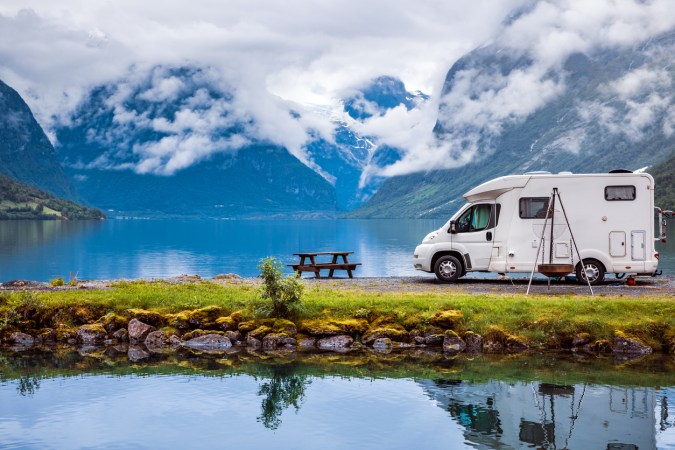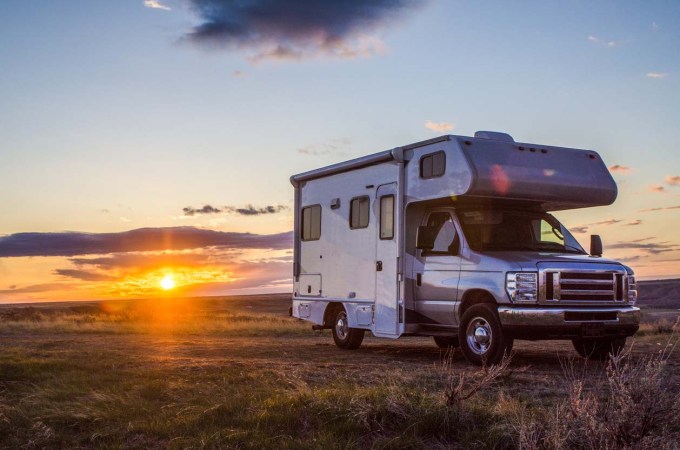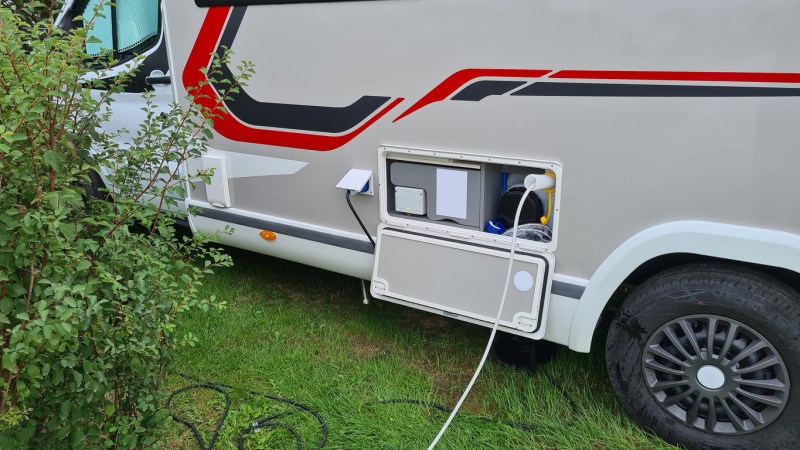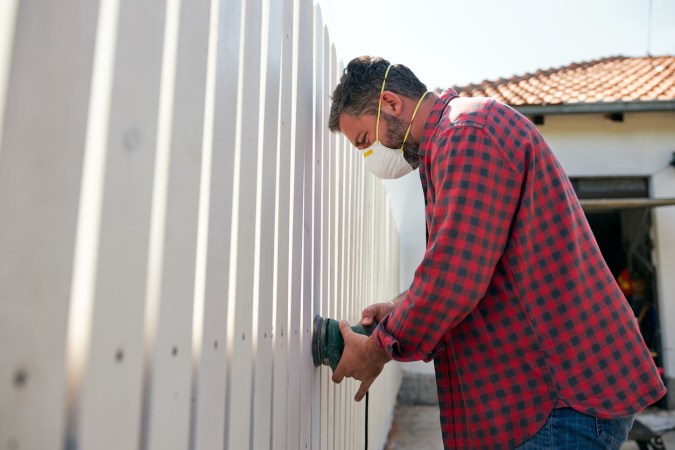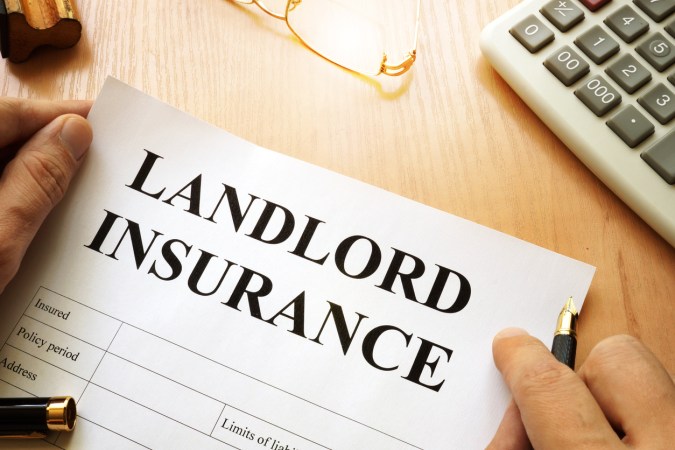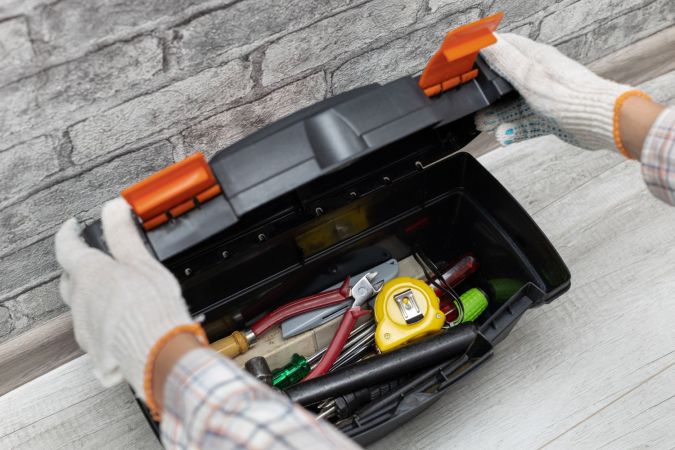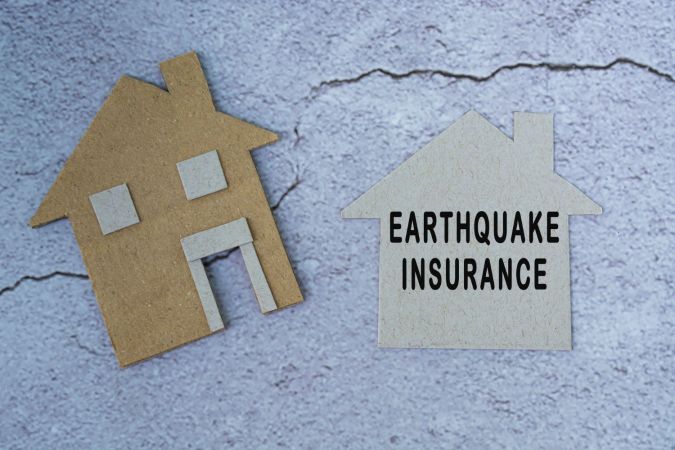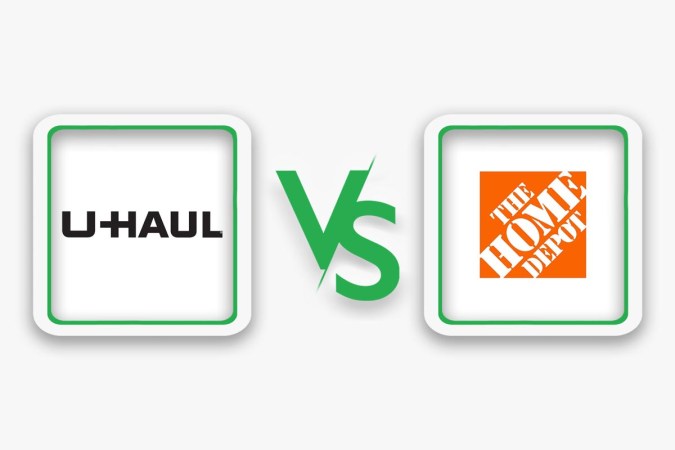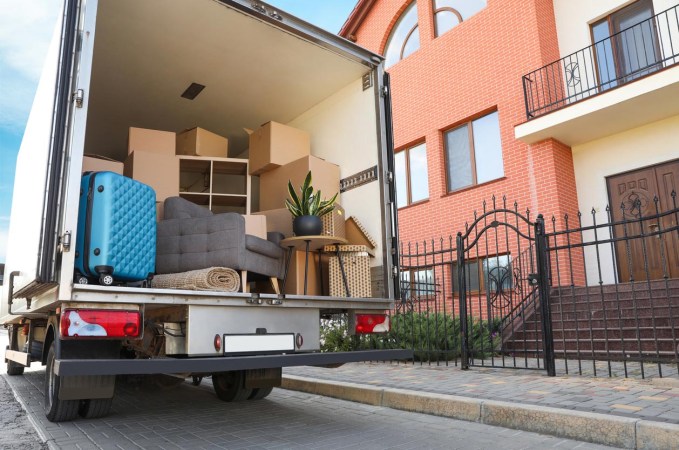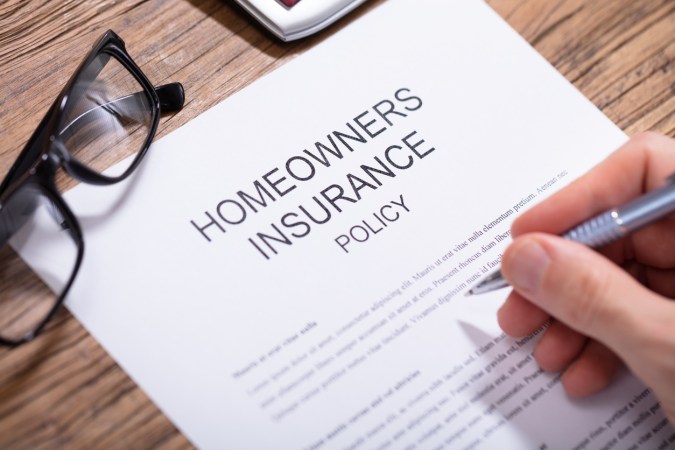We may earn revenue from the products available on this page and participate in affiliate programs. Learn More ›
Q: I just bought a used motorhome from its original owner and am planning to travel while working remotely. I’m a little concerned about the cost of repairs or where I’ll live if something happens to the RV. Can I protect it with RV insurance, and if so, what type of insurance does an RV need?
A: Whether you’re an experienced RVer with a new motorhome or a rookie RV traveler, protecting your investment with insurance is a smart choice. What type of insurance an RV needs can depend on the type of RV as well as the owner’s tolerance for risk. Some RV insurance works like auto insurance, while other types of coverage are similar to some of the coverage provided by homeowners insurance.
Any motorhome or RV that’s driven and not towed will need a liability RV insurance policy at the very least. For pull-behind RVs such as pop-up campers and fifth-wheels, liability coverage will extend from the towing vehicle’s insurance policy. But the best RV insurance companies offer additional types of coverage designed to help RV owners more fully protect their motorhome.
RV drivers are required by law to carry property damage liability and bodily injury liability insurance, though the minimum amount required for each varies from state to state.
Motorhomes can be driven and do not require tow vehicles to move from place to place, acting as their own vehicle as well as a place to sleep. These classes of RV must have a minimum amount of basic liability protection to be on the road—the exact amount will vary from state to state. Liability insurance protects RV owners financially if they are found liable for bodily injury and property damage to a third party. This coverage also pays for court fees and other legal expenses if someone sues the RV owner after an accident in which they sustain major injuries or if there is significant property damage.
Bodily injury liability insurance helps cover the cost of medical bills for third parties injured in an accident the RV owner is responsible for causing. For example, if an RV driver runs a red light and hits another vehicle, causing significant injuries to two of the occupants, the liability insurance of the RV driver would help pay for their medical expenses. If the injured parties decided to sue, the liability insurance would also help pay to defend the RV driver and pay for any settlement up to the policy limits.
Property damage liability coverage covers the cost of repairs if an RV owner causes accidental damage to a third-party’s property while the RV is on the road. This can include repairing other vehicles, such as the car an RV owner hits after inadvertently running a red light. It also covers property other than vehicles, such as if the RV driver accidentally clips a light pile while navigating a tight turn or crashes into a building.

If you have an active loan on your RV, the lender may require you to carry comprehensive and collision insurance—and even if it doesn’t, it’s a good idea to have these coverages to fully protect your vehicle.
While liability insurance is the only insurance most RV owners technically need, many choose to insure their valuable investment with additional RV insurance coverage. Two common types of insurance coverage for RVs are comprehensive and collision insurance, which act as a type of physical damage coverage that protects the RV owner’s vehicle.
Comprehensive coverage helps RV owners pay for damages to their RV that aren’t related to collisions. It generally covers events such as fire, hail, theft, or hitting a deer on the road. Collision insurance helps RV owners pay for damage to their RVs after colliding with another object, with the exception of animals. If an RV owner accidentally runs into a light pole, their collision coverage can help cover the cost of repairs to their own vehicle. Collision coverage can also protect an RV owner if their vehicle is hit by an uninsured or hit-and-run driver.
In the event of a covered incident that results in a total loss, it’s common for insurance companies to use an RV’s actual cash value when determining how much will be paid out. This means if an RV is totaled in an accident, for example, the insurance company will pay the owner the depreciated value. An RV insurance company may also offer replacement cost coverage, which would cover the cost to replace the RV with a similar one without accounting for depreciation. Because a policy that has replacement cost coverage would potentially pay out a higher amount than a policy with actual cash value coverage, RV owners will likely pay higher premiums.
Uninsured or underinsured motorist coverage can help pay for RV repair costs if you’re involved in an accident caused by a driver with insufficient liability coverage.
While liability insurance minimums vary from state to state, every state (except New Hampshire) has some form of liability protection requirement. Ideally, that would mean every driver on the road carries enough liability coverage to pay for accidents they cause. Unfortunately, some drivers choose to drive without liability insurance. If one of these drivers causes an accident with an RV, the RV owner can’t recoup their repair costs from the other driver’s insurance. For this type of situation, an RV owner may want to carry uninsured motorist coverage. Uninsured motorist insurance can help cover the costs of damages or injuries an RV owner sustains after an accident caused by an uninsured driver.

Even drivers who purchase liability insurance may not have enough coverage to pay for repairs after an accident that causes a great deal of damage. Underinsured motorists are drivers who purchase the minimum amount of liability coverage required by law in their state. In the event they cause an accident with damages exceeding their liability coverage limit, their insurance may not fully cover the cost to repair or replace other vehicles involved in the crash, not to mention the medical care the occupants in those vehicles might require. An RV owner’s uninsured and underinsured motorist coverage can help cover expenses resulting from an accident with an at-fault driver who is uninsured or one who has inadequate liability limits.
Medical payments coverage can help cover the medical expenses of you and your passengers if they’re injured while in the RV—regardless of fault.
Medical payments insurance, which is part of personal injury protection (PIP) insurance in the 12 states that require it, can help cover the accident-related medical bills of an RV driver (and those of their passengers). The benefit of medical payments coverage is that it provides coverage regardless of who was at fault, unlike liability insurance, which pays out when the insured is legally responsible for damages. For example, if an RV owner is involved in an accident with another vehicle and sustains injuries, their medical payments coverage would help cover their medical bills, up to the limits of the policy, even if the RV owner was at fault in the accident.
Personal injury protection isn’t limited to just the driver, either. The medical payments insurance portion of the policy protects any passengers in the RV along with the driver. RV owners who want to add medical payments coverage to their policy may want to talk to their insurance agent about how to get coverage. Increasing coverage often changes the cost of RV insurance. Some insurance companies offer a multipolicy discount for RV owners who bundle multiple policies with the same company. RV owners may want to ask their insurance agent for a discount list to see if they qualify.
Vacation liability insurance helps cover any third-party property damage or bodily injury to others while your RV is parked at a campsite.
Standard RV liability insurance is a lot like an auto insurance policy—it helps cover the cost of property damage and injuries in the event the driver is at fault in an accident while on the road. But what happens when an RV owner sets up camp for the night?
RV owners will need to take out vacation liability coverage to protect themselves when the RV is parked in a campground. Vacation liability insurance provides liability coverage when the RV is in a designated campsite. If a guest from the neighboring campsite is injured near the RV due to the RV owner’s negligence, the vacation liability coverage can help pay for medical bills and potential legal fees.

Vacation liability insurance typically covers an RV owner whether an accident occurs in their motorhome or in the vicinity of the RV. However, different policies have different limitations on vacation liability insurance. For example, many vacation liability insurance policies exclude coverage on public lands, even if the RV is parked in a campsite. RV owners will want to ask their RV insurance agent for details on where they will and will not be covered by vacation liability insurance.
Roadside assistance or towing coverage can help pay for repairs to your RV while you’re on the road.
RV breakdowns are often even bigger headaches than the breakdown of a car. An RV owner is likely living in their vehicle during their trip. A flat tire, malfunctioning engine, or RV that won’t start could mean they lose both their vehicle and their lodging during the time their RV is out of commission.
Many RV insurance companies help RV owners prepare for roadside emergencies with roadside assistance coverage. One of the most notable features of roadside assistance for RVs is towing coverage. Towing an RV—even a smaller one—is often more expensive than towing a regular-size car. Having towing coverage can help RV owners avoid a costly towing bill if they happen to experience a vehicle malfunction while on the road.
Most roadside assistance options offer more than just towing coverage. RV roadside assistance will usually include services such as fuel delivery, tire change service, and battery jump-start service. Some roadside assistance might even include extraction services to help the RV owner if their motorhome becomes stuck slightly off the roadway or lockout services if the RV owner accidentally gets locked out of the RV. RV owners may want to check with their insurance company about how often they can use roadside services, as some insurance companies limit the number of times per year a policyholder can use their roadside assistance coverage.
If you live in your RV full time, you may want to add additional living expenses coverage, which can help pay for hotel rooms and restaurant meals if your vehicle is temporarily uninhabitable.
Additional living expenses coverage, also known as loss of use coverage, helps compensate RV owners if they cannot live in their RV temporarily because of a covered event. For example, if an RV is involved in an accident and needs to be in a repair shop for 2 or 3 weeks, it’s possible the RV owner will need to stay in a hotel during this time. If their usual living expenses for campsite rentals and other dwelling costs are $500 per week and their rented hotel room is $700 per week, their additional living expenses coverage may cover the additional $200 per week over the RV owner’s usual costs.

Additionally, emergency expense coverage and an insurance policy for full-timers could help full-time RV travelers prepare for unexpected incidents. Emergency expense coverage helps RV owners cover expenses related to getting settled in a hotel or other rental. For instance, the insurance company may pay an RV owner a fixed amount to help them rent a car or other transportation to get to their temporary living arrangements. Full-time RV policies give full-time RV dwellers a policy that includes a mix of coverages that mimic aspects of both RV insurance and homeowners insurance.
Other types of coverage, such as RV roof protection or pest protection, can help cover your RV against specific perils such as a leaky roof or damage caused by birds or rodents.
Insurance coverage for RVs is as varied as motorhomes themselves. Many RV owners customize their RV coverage by picking and choosing the coverage that fits their needs. For example, someone living in an area with a lot of trees and fields—and the rodents that come with this landscape—may want to get roof protection for their RV. On the other hand, someone living or traveling in very wet or humid areas may want to make sure their RV insurance covers certain water damage like leaky roofs caused by hail damage.
RV owners may also be able to get insurance coverage for specific parts of their motorhome. For example, if an RV owner upgrades their motorhome with expensive aftermarket equipment, they may want to look for a custom equipment insurance package to protect their modifications and investment.
No matter what type of coverage an RV needs, it’s recommended that RV owners get insurance quotes from multiple carriers. Requesting multiple quotes with similar coverage options allows RV owners to compare each policy side by side so they can find one that’s affordable and offers the coverage they need.


